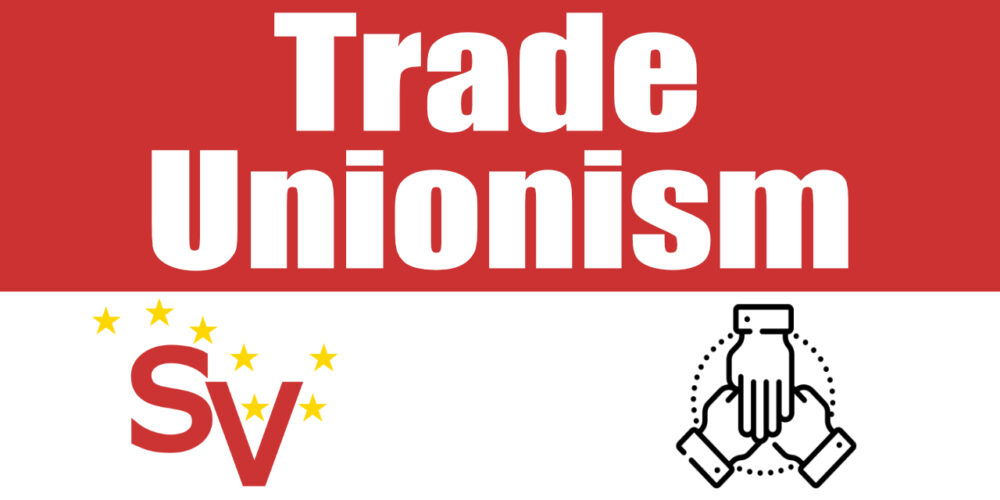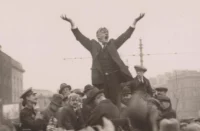The Industrial Relations Act (1990) was designed to control workers, and it attacked the trade union movement at its very core by making solidarity between workers illegal. This was done by restricting workers taking industrial action together, dividing work-places into separate grades, and banning support strikes.
Solidarity is the foundation stone of trade unionism. The ending of support action on the front line for over thirty years has led to divisions growing within the movement.
Some unions are manufacturing discontent and ridiculing other unions publicly and on social media in an attempt to appear more radical than other unions, and thus to poach members, at a time when union density is at its lowest point.
As it stands, just one in four workers are members of a union; 1¾ million workers are not. To build workers’ power, these workers must be recruited and organised. It makes little sense for unions to spend time and resources on poaching other unions’ members, which only creates division and weakens the movement.
Warren Buffett famously said, “There has been a class war going on for decades, and my class is winning.” We will not turn the tide on this class war by fighting among ourselves. The 1990 act is the jewel in the crown of that class war.
Many of the lowest-paid workers, with the poorest working conditions, are not members of a union. A recent survey found that 64 per cent of people said that if they were asked to they would join a trade union.
Unions have to start a major recruitment campaign among the unorganised. This will be hard graft, and time-consuming, but with the average age of trade union members now standing at forty-eight, and only 12 per cent of members under thirty, we have reached a tipping-point for unions. The trade union movement must go to where the working class is, listen, engage, and recruit new members to rebuild workers’ power and the trade union movement.
SIPTU’s screening of the Women’s World Cup soccer matches in Liberty Hall is an innovative initiative that will get hundreds of people into a trade union building for social gatherings. The women’s soccer team are an excellent starting-point of engagement.
It could be said that this marks the return of the women’s soccer team to Liberty Hall. A dramatic press conference took place there in April 2017 when the team went on strike and outlined a list of grievances with the FAI, which made headlines around the globe; and following intensive talks involving SIPTU, PFAI and FAI officials it resulted in a spectacular industrial relations victory for these young women.
This needs to be highlighted, and on their return they should be given a reception by the trade union movement, where they can recount their battles on and off the field.
Instead of unions squabbling among ourselves we must promote each other and build on the victories that are won. We must be inventive in our approach and think outside the box.
We must take on the naysayers who attack trade unions at every opportunity. We must build on the many successful campaigns led by unions. We must get back into communities.
We must learn from defeats but concentrate on our victories—and there are many. Mandate got zero-hour contracts banned; SIPTU stopped the Government increasing the pension age to sixty-seven; Unite got tip theft outlawed; Connect successfully defended the construction sectoral employment orders (SEOs) in the courts; FSU got the protocol for the right to disconnect introduced. These were all victories that improved conditions for workers.
The Industrial Relations Act restricts solidarity between workers and the ability to decide when and how to take industrial action.
Since 2021 it is the policy of the ICTU to have all rights lost as a result of the 1990 act restored. This will increase workers’ power and make working-class solidarity legal again. A lot of work has already been done on this. The Fair Employment Bill (2022) was drafted by the Trade Union Left Forum and is ready to go.
The next union-led campaign must be to rearm workers and restore the rights lost under the 1990 act and to implement the unanimous decision of the 2021 ICTU congress to get the necessary legislation enacted. This will tip the balance of power firmly on the side of workers. It will make solidarity between workers legal again, build confidence, and bring unions together again where seeds of division have been growing.
Unity is our strength, and workers’ solidarity is the rustproof weapon of our class.






